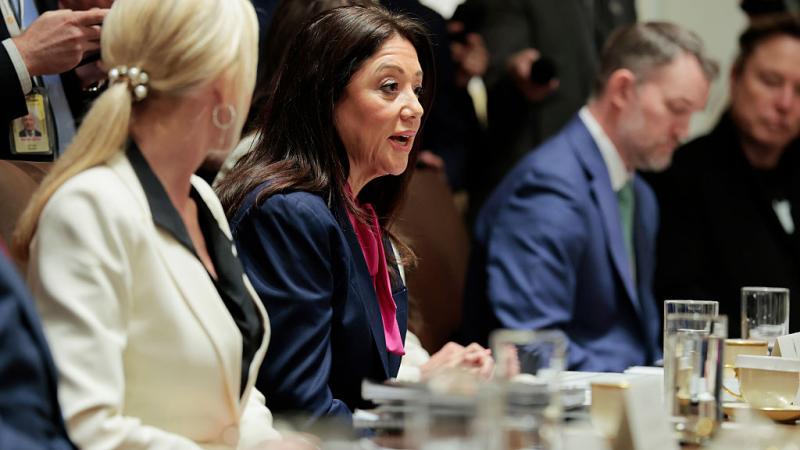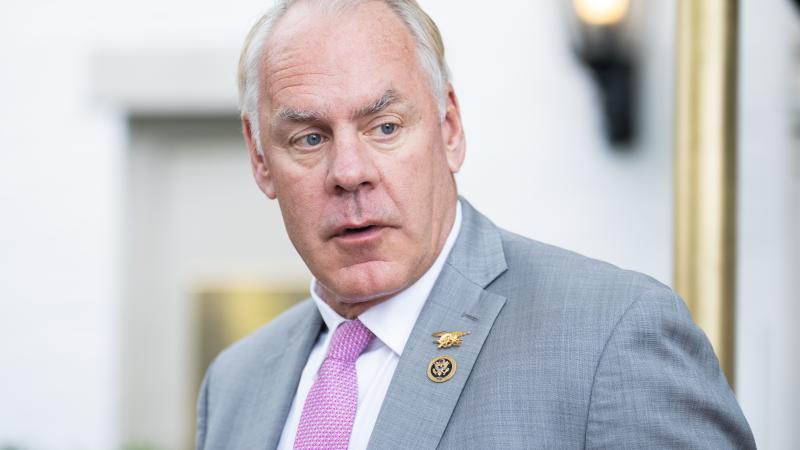Federal revenue falls $416 billion from this time last year despite passage of IRA
Budget experts say the revenue raising portions of the IRA still haven't taken full effect and when they do, the cost of the law's energy tax credits will likely drown them out. The projections for interest rates – already at a 16-year high – may further doom the IRA's success.
Federal revenue dropped $416 billion compared to this time last year, according to recently released U.S. Treasury Department data, despite the Democrats’ passage of their $780 billion Inflation Reduction Act last year.
The legislation, which President Biden signed in August 2022, contained a 15% minimum corporate income tax, which still hasn't been fully implemented by the IRS.
Experts at the Committee for a Responsible Federal Budget and the Tax Foundation told Just the News that most of the revenue raising provisions in the IRA have not taken effect yet but they likely won't raise much revenue given the price-tag of the energy-related tax credits in the bill.
“When they do, they’ll raise tens of billions a year – not hundreds of billions – much or all of which will be countered by reduced revenue as a result of the IRA’s energy tax credit,” said Marc Goldwein, senior vice president and senior policy director at the CRFB, on Monday.
"When it comes to the IRA, it is true that the tax credits look like they will cost way more and some of the revenue provisions may be getting a bit of a slower start in terms of the regulations. But those issues have little to nothing to do with the drop off in revenue between 2022 and 2023,” he added.
Scott Hodge, president of the Tax Foundation, told Just the News that some of the tax credits in the IRA, like the clean vehicle credit and solar tax credit, are in effect right now and will cost billions. "In the short term, the IRA is generating little new revenue because of the delays in implementing the 15% minimum tax so the green energy credits are costing taxpayers billions," he said.
Hodge pointed out that the IRS enforcement plans were delayed because of the debt ceiling deal reached by President Biden and House Speaker Kevin McCarthy, adding that the IRS hasn't fully implemented the 15% minimum corporate tax until the agency finalizes the enforcement rules.
"If we look at Treasury’s monthly report, the drop in individual income tax receipts is the biggest factor for the overall decline in federal receipts. They are down by $438 billion alone," Hodge told Just the News.
"My guess is that much of that may be due to the slower economy and lower capital gains tax collections because of the slumping stock market. Corporate income taxes are higher than last year as are payroll taxes such as Social Security, so those are not a factor,” he added.
The CRFB's Goldwein said the revenue fall for FY2023 is "mainly the result of normalization from a one-time spike in 2022” that was "driven by massive capital gains realization in 2021 and from a surge in inflation leading to much higher taxable income and profits in 2022, before the tax code was largely indexed to account for this inflation for 2023."
There seems to be a consensus among fiscal experts that the delays in implementation are partly responsible for the loss of income.
The Tax Foundation said in a recent paper titled "Inflation Reduction Act One Year After Enactment" that "the law’s complicated tax increases on large corporations, particularly the minimum tax on book income, have resulted in extraordinary implementation challenges and taxpayer confusion, with many questions left unresolved. Payments for both the minimum tax and the stock buyback tax are currently on hold until the IRS issues further guidance."
Other factors include the "end of Fed remittances (given the high interest rates) and a big surge in retroactive collection of the Employee Retention Credit," Goldwein added. The CPRB also notes that interest rates are at a 16-year record high and that "if interest rates remain above the growth rate [...] it could create the risk of a debt spiral."
















